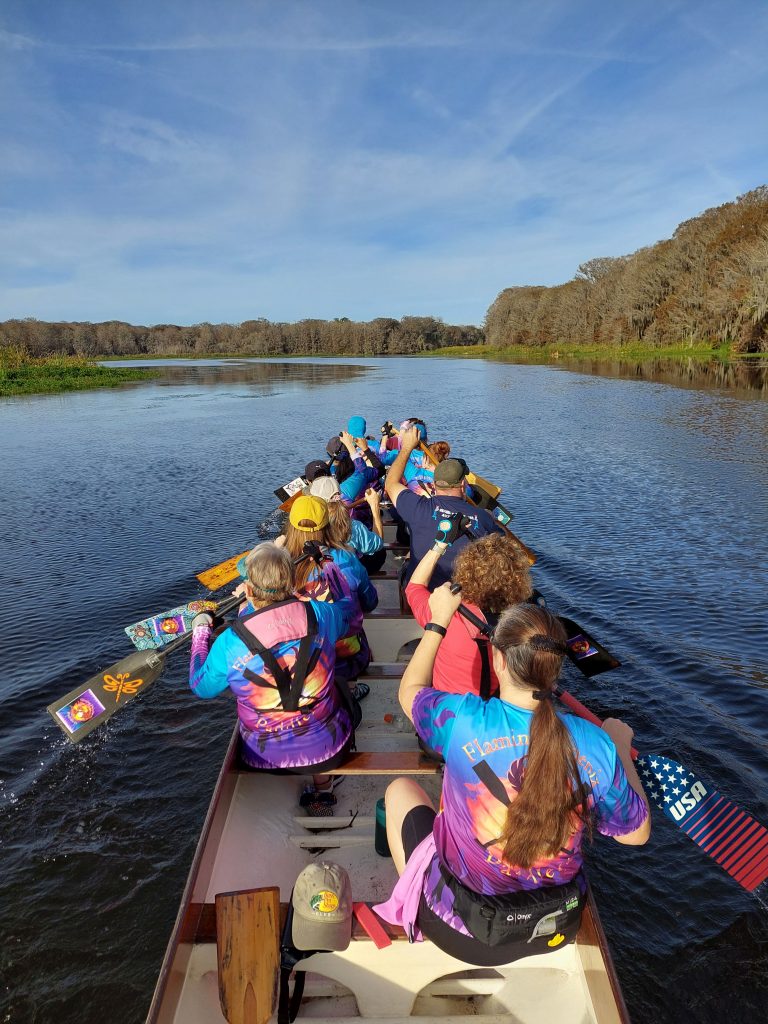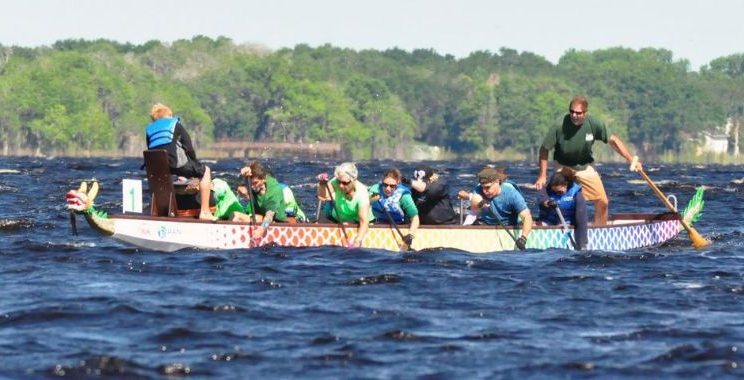By Nichole Smith
Mr. Scott Werner, a Middle School science teacher at Montverde Academy, has been competing in dragon boat races since 2013. A dragon boat race is a short sprint race about a quarter of a mile long in a giant, 37-foot canoe that can hold up to 22 people. There is one drummer in the front facing the 20 paddlers and one steersman in the back of the boat. The paddlers must paddle synchronously and intensely for a minute and a half, a true test of their strength and stamina.

“I love the water, and I love doing everything in the water,” said Mr. Werner. He has been paddling essentially his entire life. Years ago, he competed in ultra-distance canoe races that were hundreds of miles long. One race in particular was 340 miles long, which he completed in 49 hours of continuous paddling. Paddling has always been a major part of his life – he even competed in a 230-mile race with his wife while they were on their honeymoon.
Dragon boat racing attracts a wide variety of participants. The majority of paddlers do not even participate in other water sports. Many of them become interested in it after seeing someone else do it, not because they were already interested in water sports, which provides Mr. Werner with a great opportunity to interact with many different types of people. The sport is comprised primarily of people in their 60’s, and although everyone is in the same boat, there are varying ages and athletic abilities.
Mr. Werner is the coach for the Flaming Phoenix, a name that was coined to capture the spirit of “rising from the ashes” after many disruptions to the team’s competitions during the pandemic. When he is coaching, he brings his love of the sport back to the classroom at MVA. “We talk about the physics of all of these things so students understand that you don’t just use science for the typical science that they think of and that coaches are using science all the time, too. I’m constantly using physics for coaching pole vaulting, coaching dragon boat, and all the paddling things that I do,” said Mr. Werner.
In particular, he often writes word problems for his students that incorporate his love for boat racing into a simple distance versus time problem. He helps his students tackle velocity problems that ask how long it would take to do a race if a person can paddle X meters per second. He even applies these principles to real-world problems, such as determining how many calories of food must be consumed in order to avoid major energy deficits during a race.
“A lot of my interests show up in what we do in class,” said Mr. Werner, “and I always show students how I use science in all of my sports that I compete in and the coaching that I do.”



